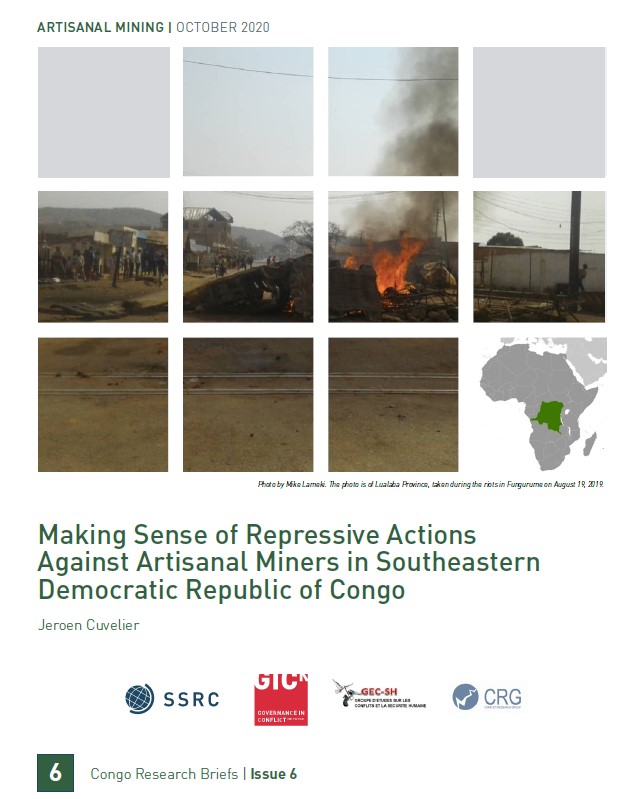Making Sense of Repressive Actions Against Artisanal Miners in Southeastern Democratic Republic of Congo
This 6th Congo research brief aims to take a closer look at the political dimensions of repressive actions against artisanal miners in southeastern DRC. It argues that the decision to act repressively against them was driven by the fluctuating demand for cobalt on the international market as part of the so-called ‘green revolution’. These price fluctuations created a situation in which the relationship between industrial and artisanal mining became very tense and violent, with both parties seeking to maintain access to mineral-bearing land, and the Congolese government coming under increased pressure to protect the mining rights of the mining industry. At the national level, the most important explanatory factors for the repressive actions include uncertainty about the future of the Congolese mining sector after the 2018 elections and corporate demand to provide better protection against the invasions of its concession by artisanal miners. At the sub-national level, the eagerness of governor Muyej to promote the reputation of Lualaba as a stable mining province and the power struggle between local big men in Fungurume also help account for the violent interventions against creuseurs.
The Congo research briefs are a joint publication of the Conflict Research Group (CRG) at Ghent University, the Social Science Research Council (SSRC), the Study Group on Conflicts and Human Security (GEC-SH) at the University of Kivu Research Center (CERUKI), and the Governance-in- Conflict Network (GiC). These provide concise and timely summaries of ongoing research on the Congo that is being undertaken by CRG, SSRC, GEC-SH, GiC, and their partners.
The research for this paper was part of a postdoctoral research project funded by FWO-Flanders. For the collection of the data, the author received excellent help from Stephane Lumbu Maliba. We are grateful for the comments, suggestions, and constructive criticisms from Hans Hoebeke, Sara Greenen, and Steven Van Bockstael on earlier versions of this paper.
The research for this working paper was supported by FWO-Flanders, grant number 12N2317N.




